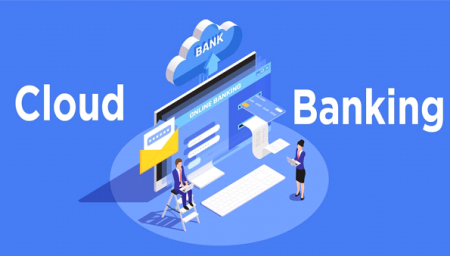Dinesh Elumalai explores how “Cloud Computing” plays an important role in both our professional and personal lives
We have been using Cloud Computing for over a decade, you may not realize it! Have you ever sent an email to yourself with an attachment from your home computer, then signed into your email at work to access the attachment? That was the state of cloud storage in 2005.

But what exactly is Cloud Computing now? Cloud Computing is the on-demand delivery of IT resources via the internet for a fee. You can pay to use a cloud computing service instead of purchasing and maintaining computer products and services. It saves you time, effort, and money!
Most important Cloud Service Models
Cloud computing services are classified into three types that stack on top of each other:
- Software as a Service (SaaS)
- Platform as a Service (PaaS)
- Infrastructure as a Service (IaaS)

We shall discuss the above three topics in detail later along with its advantages and disadvantages.
What are some best practices for leveraging the cloud in your organisation?
The term “Cloud Computing” refers to the use of remote servers hosted on the internet to store, manage, and access data and applications. Cloud Computing technology is advancing at a rapid pace. Professionals working in this technology are in high demand. As a result, cloud computing courses are also in high demand.

Businesses can benefit in a variety of ways, including increased flexibility, scalability, security, and efficiency. However, before you start reaping the benefits of cloud, you must first understand how it works and how to apply it to your business. This article will go over some best practices for utilizing the cloud in your business.
Best cloud-based business practices you could implement
Though there are various practices that are being used in the market, we are going to think through the following three simple yet best practices for your business.
- Implement Cloud Encryption
- Increase Scalability by using Cloud
- Create a Cloud strategy & Set goals
Sify Technologies – Cloud Services
Implement Cloud Encryption in your business
As more and more businesses use cloud-based storage and applications, the need for data encryption to protect sensitive information grows. When it comes to data security, encryption is the way to go. Encryption is critical for businesses that want to keep their confidential data private. Encryption is the process of converting readable data into an unreadable format in order to prevent unauthorized access to it. Cloud-based encryption services can help businesses protect their data while it is in transit and at rest. This is a process in which your data is encrypted and stored on a remote server before being sent. These services can be used to encrypt both data stored in the cloud and data transmitted between the cloud and devices in the field of your business.

Increase Scalability in your business by using Cloud
Cloud computing has transformed how businesses operate. Businesses can improve scalability and agility while lowering costs by leveraging cloud-based solutions. For businesses to store and access data from anywhere in the world, the cloud provides a secure and dependable platform. The cloud also allows businesses to quickly and easily scale up or down their operations as needed. This adaptability enables businesses to respond quickly to market changes and optimize their resources accordingly. Furthermore, by eliminating the need for on-premises hardware and software, the cloud assists businesses in lowering their IT costs.

Create a Cloud Strategy and a Set of Goals for your business
The cloud can be a very useful tool for businesses of all sizes. Businesses can improve communication, optimize resources, and increase efficiency by developing a cloud-based strategy and set of goals. By making it easier for employees to share information and collaborate, the cloud can help businesses improve communication. The cloud can also assist businesses in resource optimization by allowing them to access the resources they require from any device or location. Finally, by automating tasks and processes, the cloud can assist businesses in increasing efficiency.

Conclusion
Aside from the benefits mentioned above, Cloud Computing can provide a range of advantages to businesses, including increased efficiency, improved collaboration, and lower costs. If you want to take a cloud computing online course, make sure to pick the best one for your needs.
We leave you with these insights on the best practices in cloud computing in business areas. If you have any thoughts or clarifications, we would request you to post your comments below.










